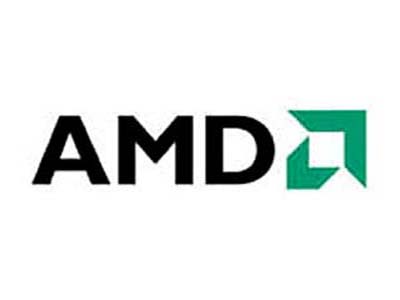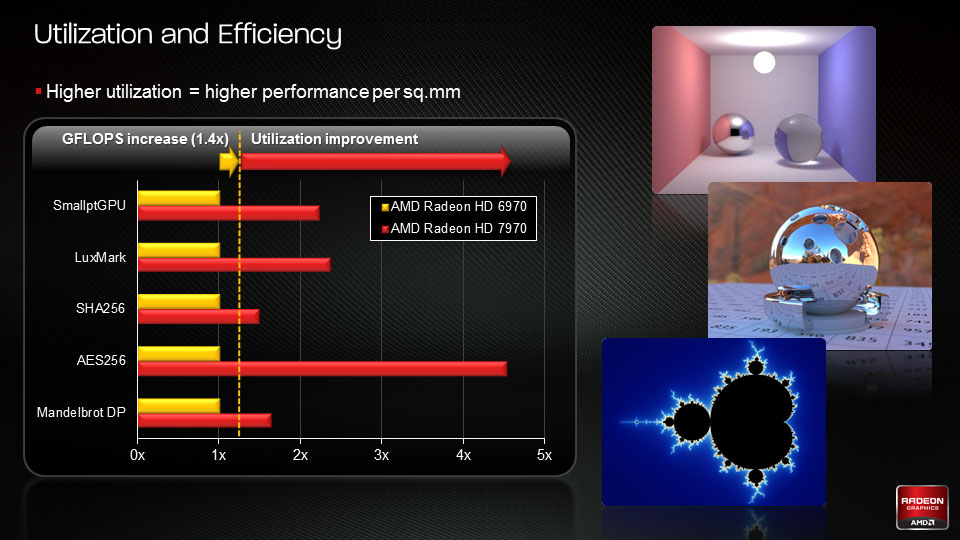AMD Unveils Its Unified Gaming Strategy
AMD's presentation at this year's GDC covered the strategies main tenets and outlined how the company was "effectively positioned to drive the next revolution in gaming."
Get Tom's Hardware's best news and in-depth reviews, straight to your inbox.
You are now subscribed
Your newsletter sign-up was successful
At this year's GDC, AMD unveiled its Unified Gaming Strategy that aims to drive the gaming market across consoles, cloud platforms, tablets and PCs. In addition to providing "innovative graphics technologies" and working with the "world's leading hardware and game developers," the strategy focuses on the Radeon Sky Graphics cloud gaming platform, GCN architecture and the Gaming Evolved program.
The Radeon Sky Graphics technology was developed on the company's Graphics Core Next (GCN) architecture and offers a flexible cloud gaming technology that enables game developers and service providers to deliver a world-class content experience to millions of gamers whether it’s through PCs, tablets, Smart TVs or mobile devices. The architecture also features prominently in the company's upcoming range of discrete graphics cards, specifically the recently released Radeon HD 7790 graphics card which AMD describes as the "ultimate choice for gamers looking to maximize their gaming experience in the USD$150 MSRP range."
“Real-time gaming through the cloud represents a significant opportunity, and AMD is poised to lead in this vertical thanks to our extensive graphics hardware and software capabilities,” said David Cummings, senior director, AMD Professional Graphics. “AMD is working closely with CiiNow, G-Cluster, Otoy and Ubitus to deliver exceptional AMD Radeon gaming experiences to the cloud.”
Also featured in AMD's GDC presentation was a sneak peek of its remodeled and reinvented "Ruby" demo that was first revealed a decade ago. The latest "Ruby" demo was designed and developed by IllFonic and employs Crytek's CryEngine 3 to highlight the real world gaming possibilities of AMD's graphics technology. The demo is still under production and is expected to be fully unveiled in the coming weeks.
Finally, AMD's well received Never Settle: Reloaded Bundle was cited as an example of AMD's empowering of "gamers to unleash the most realistic gaming experience" and made specific reference to the presence of BioShock: Infinite's DirectX 11 PC with exclusive features such as anti-aliasing, texture detail and dynamic shadows.
Contact Us for News Tips, Corrections and Feedback
Get Tom's Hardware's best news and in-depth reviews, straight to your inbox.
Tarun Iyer was a contributor for Tom's Hardware who wrote news covering a wide range of technology topics, including processors, graphics cards, cooling systems, and computer peripherals. He also covered tech trends such as the development of adaptive all-in-one PCs.
-
john3569 gotta love the never settle reloaded bundle. too bad the ultimate reload version isnt available in canada. would have loved six free games with my 7970's. **** canada...Reply -
abbadon_34 AMD is commiting suicide if pushes "cloud" gaming. Right now, it doesn't work, and thus is waste of money. If, at some point it does work, there would be little to no need for high end dedicated graphics cards, thus they won't sell any product. Plus people like myself loath any "cloud" dependencies.Reply -
goodguy713 yea not one for storing things on cloud drives you never know who can look at what you have and on top of that I have a hard time guessing weather or not the ping will be to high currently I can easily get pings of 28 to 32 all day long in battle field 3 so having a cloud server close to main cities would be paramount other wise latenancy issues will keep people away I personally like having my own machine .. and not some cloud based rent a play system.Reply -
memadmax AMD, you need to get real.Reply
Get away from the efficiency crap and start producing chips with HORSEPOWER that will crush the competition, not chips that merely stay at arms' length either in front or behind them!
CRUSH THEM! DO IT NOW! -
A Bad Day I could see a few applications with this:Reply
-High settings on a smartphone or tablet, assuming you're connected to a sufficiently fast network, and don't have a stupid 300 MB cap. The best gaming tablet available as of now is the Razer Edge Pro, but it's very bulky and heavy for a tablet. And extremely expensive for its hardware.
-Poor man's high setting gaming, if he's living in areas with ultra-quality networks such as South Korea. Why plunk down $1600 for a gaming desktop when you can pay a much smaller monthly fee for Crysis 3 on max settings? This will obviously not work in the US, where high speed internet is either expensive, or only high latency satellite/dialup is available.
-Instead of several workstations for AutoCAD or other demanding tasks, a mainframe with "dumb" terminals (just a keyboard, mouse, and screen) can be used instead.
-Same could be applied to arcade gaming. No more big, bulky machines that waste valuable space.
-Instead of lumbering a 87 pound desktop down the stairs to hook it up to a 60" inch TV, or using a lighter desktop with less capable GPU/CPU, one can simply connect the TV, keyboard, and mouse, and not have to haul anything around.
abbadon_34AMD is commiting suicide if pushes "cloud" gaming. Right now, it doesn't work, and thus is waste of money. If, at some point it does work, there would be little to no need for high end dedicated graphics cards, thus they won't sell any product. Plus people like myself loath any "cloud" dependencies.
"I have traveled the length and breadth of this country and talked with the best people, and I can assure you that data processing is a fad that won't last out the year."
-- The editor in charge of business books for Prentice Hall, 1957.
"Radio has no future. Heavier-than-air flying machines are impossible. X-rays will prove to be a hoax."
-- William Thomson, Lord Kelvin, British scientist, 1899. -
aggroboy abbadon_34If, at some point it does work, there would be little to no need for high end dedicated graphics cards, thus they won't sell any product. If it works there would be a huge market need for big servers containing GPUs running in parallel.Reply -
abbadon_34AMD is commiting suicide if pushes "cloud" gaming. Right now, it doesn't work, and thus is waste of money. If, at some point it does work, there would be little to no need for high end dedicated graphics cards, thus they won't sell any product. Plus people like myself loath any "cloud" dependencies.Reply
Stressing the part where you said right now, these services probably won't be available until sometime next year. By then, you'd see much faster data connections across most countries considering the fact that the FCC is getting pretty pissed at ISP's now. They'll have to adjust, and other countries will follow suit. Remember how APU's are ideal for video compression and recompression, especially with support for HSA applications? It's all tieing together now, APU's are cheap, AMD has solutions to make both ends of the market meet.
Get a cheap system with an APU, a subscription to a cloud service for gaming and you're going to see faster progression in gaming technology because servers can be upgraded without too much hassle and consumers don't have to upgrade often.
The main thing that bothers people is latency when it comes to consoles., but keep in mind that this solution is probably aimed at consoles. Consoles already have much higher latency than PC's(TV's, controllers, frame latency etc. are all slower on consoles), so this could make sense for single player/ co-op gamers in the near future and as latencies get lower, it'll also be applicable to competitive multiplayer games. -
anxiousinfusion I feel like I'm being stabbed in the back by the gaming industry when it comes to cloud gaming. I find the idea revolting.Reply -
A Bad Day Just a quick question about multiplayer latency, which one produces more latency?:Reply
1. Sending control input data to a multiplayer server, then receiving the output data (location, physics, other calculations, etc) before rendering begins.
2. Sending control input data to the cloud server, then receiving the final display output data. -
Onihikage If AMD was smart about pushing cloud gaming, they'd be investing heavily in fiber networks such as Google and FiOS, and offering a free month of Google Fiber (when available) with every purchase of an AMD video card.Reply

